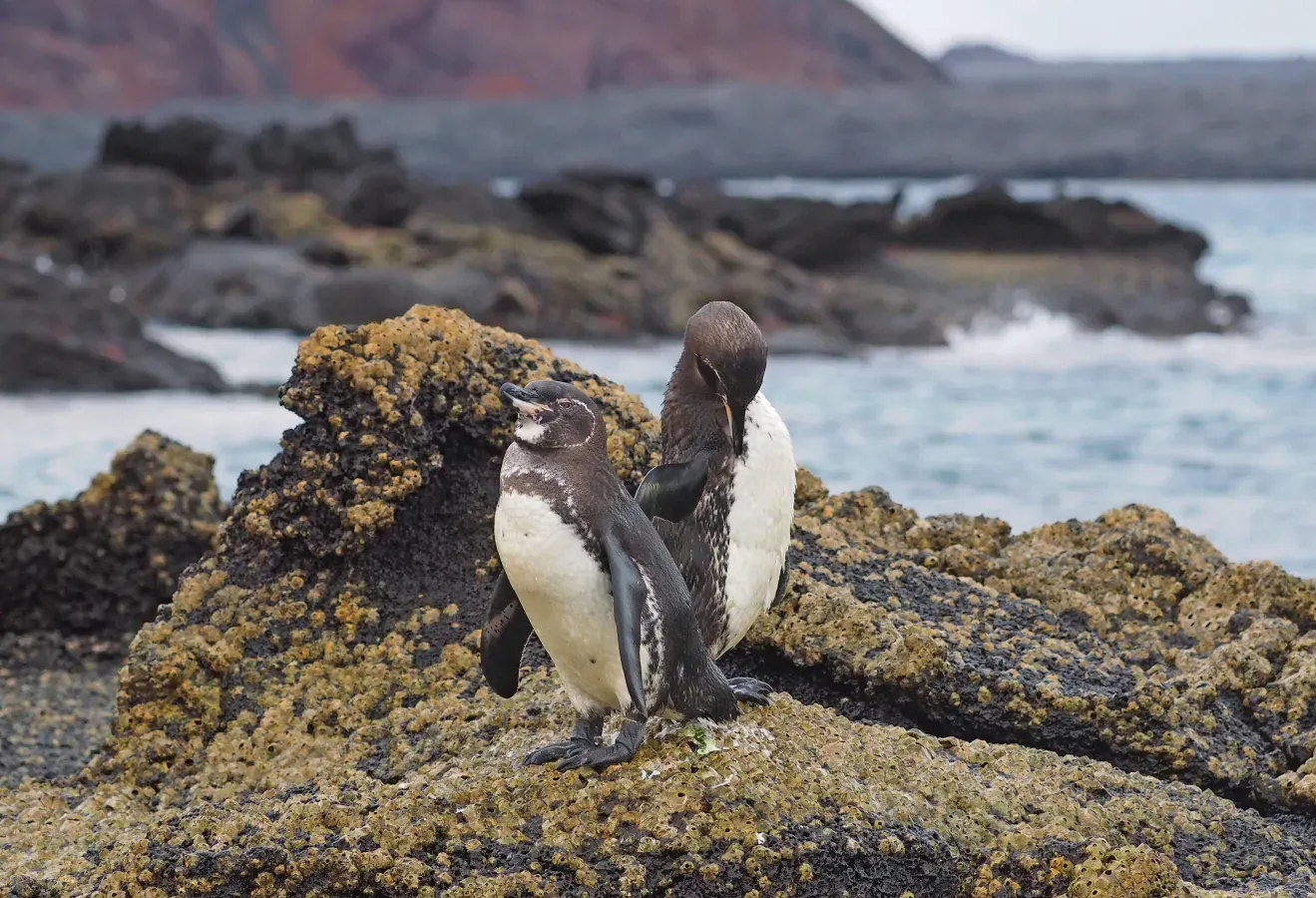
Galapagos Penguin
Galapagos Penguin
100
17 hours ago
Not yet spotted on Fladder
Spotted
The Galápagos Penguin is the only penguin species found north of the equator and is endemic to the Galápagos Islands. It is the second-smallest penguin species and is characterized by its small size, black and white plumage, and a unique facial stripe. This species is critically endangered and adapted to a warm, equatorial environment.
Where to spot
Endemic to the Galápagos Islands, particularly Fernandina and Isabela islands. Inhabits rocky shores and coastal waters.
How to spot
Look for its small size, black and white plumage, and a thin white stripe that wraps from behind the eye around the chin. Observe them swimming rapidly underwater, often chasing fish. Maintain distance and avoid disturbing them due to their critically endangered status.
When to spot
Year-round resident. Breeding can occur year-round, often triggered by food availability. Best observed during daylight hours, either swimming, sunbathing on lava rocks, or nesting in crevices. Tourist boats often provide viewing opportunities.
Where to spot
Endemic to the Galápagos Islands, particularly Fernandina and Isabela islands. Inhabits rocky shores and coastal waters.
How to spot
Look for its small size, black and white plumage, and a thin white stripe that wraps from behind the eye around the chin. Observe them swimming rapidly underwater, often chasing fish. Maintain distance and avoid disturbing them due to their critically endangered status.
When to spot
Year-round resident. Breeding can occur year-round, often triggered by food availability. Best observed during daylight hours, either swimming, sunbathing on lava rocks, or nesting in crevices. Tourist boats often provide viewing opportunities.
The Galápagos Penguin is the only penguin species that lives and breeds in tropical waters, relying on the cold, nutrient-rich Humboldt and Cromwell currents to provide its food.
Loading...
Spotted
- Recently spotted
- 69 (Seen in the last 3 months)
- Last spotted
- 17 hours ago
Monthly observations
No observations
Loading...
Nothing spotted yet



























